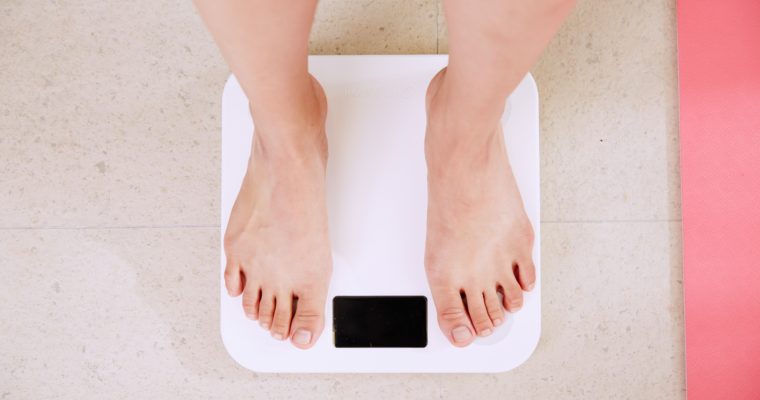Photo by I Yunmai on Unsplash
Visceral fat, active fat on your abdomen, can have potentially dangerous consequences, including type-2 diabetes and heart disease.
This kind of fat is known as “active fat”, as it influences how hormones function in the body. Imaging scans, CT and MRI, are the best ways to determine whether you have visceral fat. Speak with your doctor if you are concerned about the fat on your abdomen. He or she will ask questions regarding your diet and lifestyle and most likely measure your overall body fat to determine the percentage of visceral fat.
Location, Location, Location
When it comes to body fat, location counts. According to Harvard, 90% of body fat is subcutaneous, the kind that lies in a layer just beneath the skin. The remaining 10%, called visceral fat, lies out of reach, beneath the firm abdominal wall. It is found in spaces surrounding the liver, intestines, and other organs. Researchers have identified a host of chemicals that link visceral fat to a surprisingly wide variety of diseases.†
Also according to Harvard, visceral fat produces proteins called cytokines, which can trigger low-level inflammation, a risk factor for heart disease and other chronic conditions. It also produces a precursor to angiotensin, a protein that causes blood vessels to constrict and blood pressure to rise.†
Cardiovascular Health
Studies have shown that visceral fat is implicated in a number of chronic conditions, including cardiovascular disease. A large study of European women between the ages of 45 and 79, concluded that those with the biggest waists (and those with the largest waists in relation to their hip size) had more than double the risk of developing heart disease. The risk will still nearly double even after adjustment for several other risk factors, including high blood pressure, cholesterol, smoking, and BMI. Even in health, non-smoking women, every 2 inches of additional waist size raised the risk of cardiovascular disease by 10%.†
Dementia
Researchers at Kaiser Permanente found that people in their early 40s with the highest levels of abdominal fat, compared with those who had the least abdominal fat at that age, were nearly three times more likely to develop dementia (including Alzheimer’s disease) by their mid-70s to early 80s.†
Women
According to Harvard, as young adults, women on average have less visceral fat than men, but that changes with menopause. In a four-year study at Louisiana State University tracking healthy middle-aged women, every one of them put on some subcutaneous belly fat, but only those who entered menopause added significant amounts of visceral fat.†
Steer Clear of Visceral Fat
Here is how to lose visceral fat, the healthy way –
- Exercise! Engage in at least 30 minutes of moderate-intensity activity most days, such as brisk walking or bicycling at a casual pace.
- Practice good nutrition! Choose a balanced diet that helps you achieve and maintain a healthy weight. Starting small helps to slowly allow the cravings to ease and eventually a healthy diet will be achieved through meal plans and healthier snack options.
- Quit smoking! According to Harvard, the more you smoke, the more likely you are to store fat in your abdomen rather than your hips and thighs.
- Sleep tight! Sleep 7-8 hours per night to ensure the proper rest your body needs to recover and restart for the next day. It not only stops your body from storing fat due to the tiredness in your body but it will allow assist in limiting cravings and give your body more energy.
Natural Alternatives to help you lose weight
Weight management is a challenge. Technology has led to a sedentary lifestyle; instead of physical activity, a large majority of Americans spent their time in front of a screen. But there’s good news! According to Jerry Hickey, R.Ph, the correct foods, a healthy lifestyle and weight management supplement can make a major difference and help to support your weight management needs.
“Research shows that taking a protein supplement after a meal helps you feel satiated. This curbing of your appetite decreases craving for food. Imparting a feeling of satiation improves the success of any diet plan. Additionally, staying on a post meal protein supplement has been shown to help dieters keep the weight off successfully months after dieting is over and in fact they often continue to loose some additional weight. Your choice of protein can offer additional benefits. Choosing a New Zealand source milk protein isolate or high quality whey protein may be the best choice if you need to improve the building of bone. These two proteins also supply the ingredients used by your body to create an incredibly protective antioxidant known as glutathione which benefits the entire body. Glutathione is involved with organ protection, detoxification, and immune system health. Choosing a non-genetically modified soybean derived protein also improves satiety, protects bone health, and may help lower your cholesterol modestly. ”
† https://www.health.harvard.edu/staying-healthy/taking-aim-at-belly-fat





